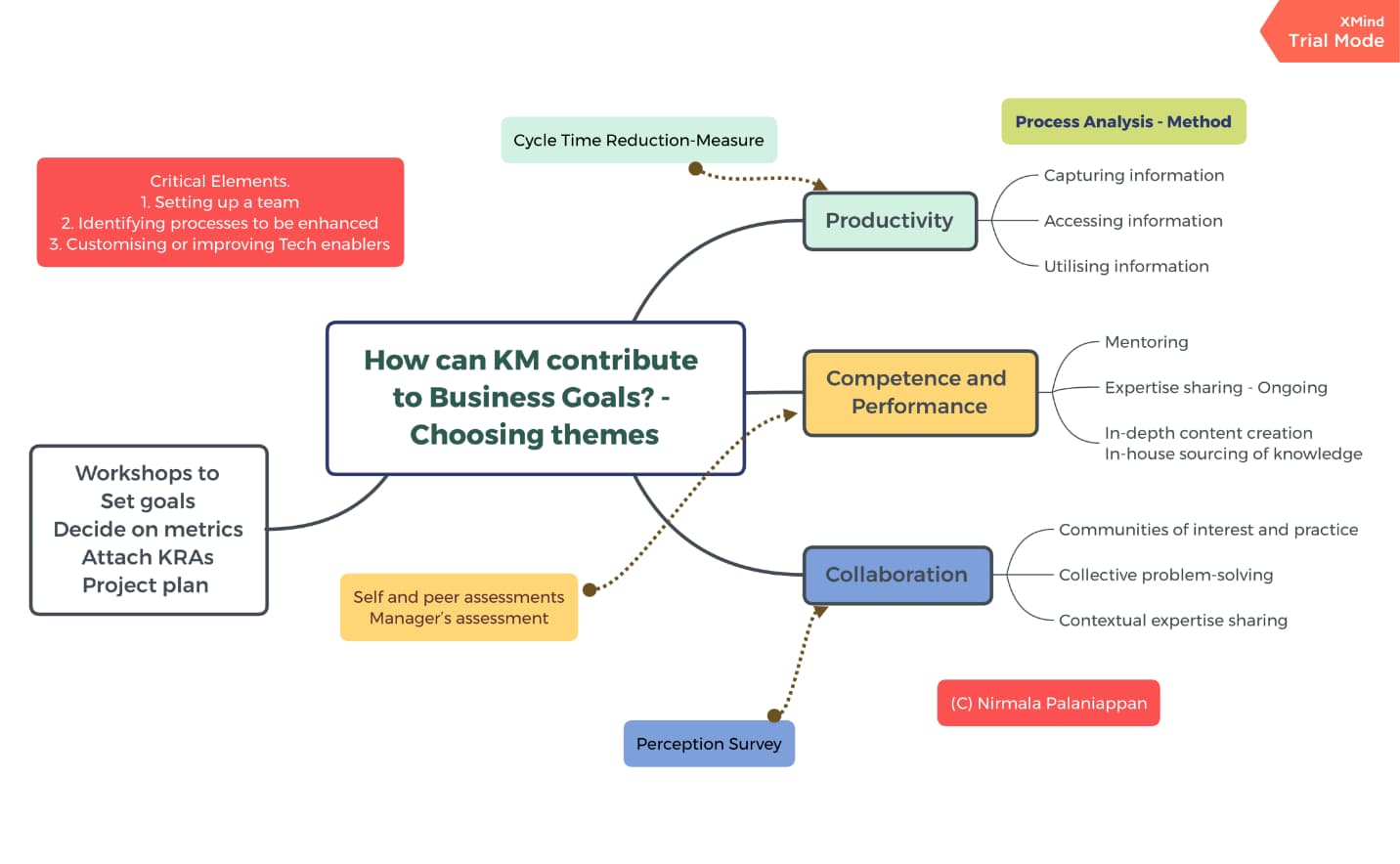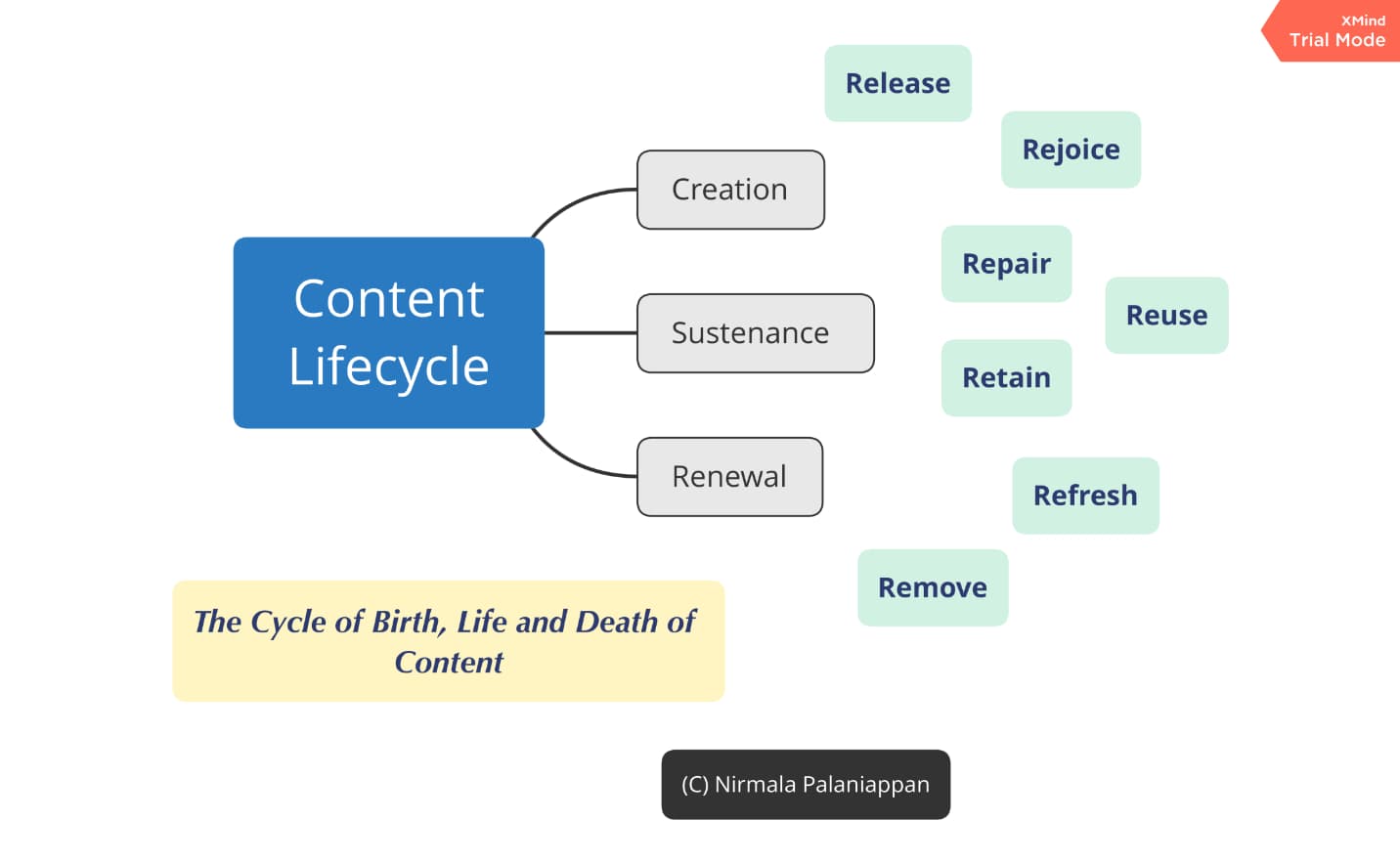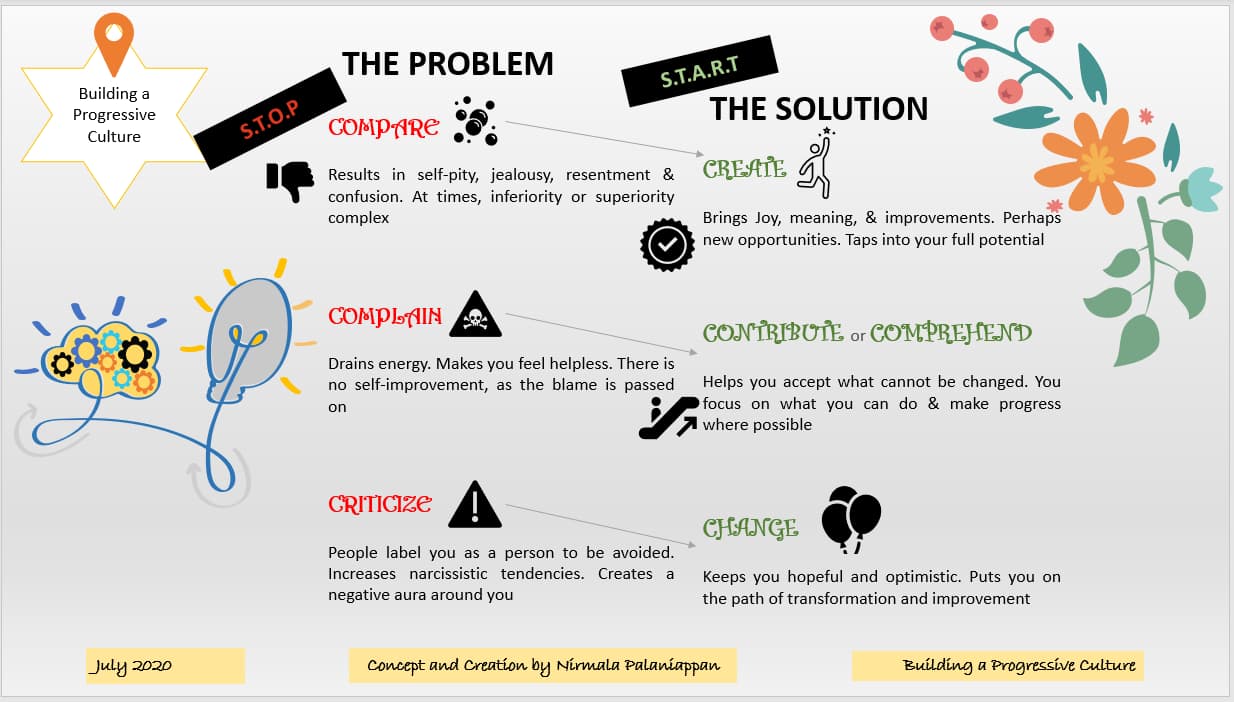Lucidea’s Lens: Knowledge Management Thought Leaders Part 46 – Nirmala Palaniappan

Stan Garfield

Nirmala Palaniappan (Nimmy) is passionate about knowledge, learning, design, and innovation and interested in product management, design thinking, business research, collaboration, culture, change management, consulting, process improvement, branding, and business strategy. She was awarded a US patent for the KM framework, methodology, and toolkit she conceived. Nimmy is currently Vice President of Knowledge Transformation Services at Genpact in Chennai, India.
Nimmy has expertise in creating and implementing intranets, community tools, expert locators, mobile apps, content management systems, internal portals, and Enterprise 2.0 tools. She also has skill in formulating KM strategies, creating a knowledge sharing culture, enhancing processes, designing and project managing technological implementations, and defining and monitoring benefits/measures.
Her specialties include knowledge management strategy, culture and change management, business process improvement, branding and advertising, KM technology concepts and enhancements, and business analysis. She wrote and presented several KM papers at national and international conferences on KM implementation, Enterprise 2.0, collaboration, toolkits, and blogging.
Experience
- Genpact – Vice President of Knowledge Transformation Services, 2021-present
- TAFE – Tractors and Farm Equipment Limited – Head of Knowledge Management, 2014-2020
- Oracle – Director, Social Enterprise/KM (Asia Pacific Technology Units), 2007-2014, Bangalore
- Wipro Technologies – Lead KM Consultant. 2005-2007, Knowledge Manager, 2002-2005
- CG Smith Software Pvt Ltd – Knowledge Manager, 2000-2002
Education
- Bangalore University – BE (Instrumentation Technology)
- Anna University – MBA (Systems and Finance), 1999
Profiles
Award and Patent
- 2015 Awards: Most Influential Knowledge Management Professionals
- US Patent 7657498B2 – Business-aligned organizational knowledge management system
Content
- Blog — Aa..ha! [Thinking Inside The Blog!]
- LinkedIn Articles
- LinkedIn Posts
- SIKM Leaders Community Posts
Videos
- YouTube
- Emerging Trends in KM and Digital Transformation in the Pandemic Era – discussion with Rajesh Dhillon
Articles
- Is Knowledge Sharing an Art or a Science?
- The KM Elephant Story
- The KM Elephant Story, Part 2
- Impact of Videos on KM Engagement and Effectiveness
- Elementary, My Dear Watson
- Knowledge on Tap
- What are the skills KMers need to have in future?
- What’s in it for me when I share knowledge?
- KM and its impact on Sales/Revenue
- Chatbots and how they add value to KM programs
- Tacit Knowledge Capture (Conversion of Tacit to Explicit Knowledge)
- Lack of Cross-Functional Collaboration as a Barrier to KM
How can KM contribute to business goals?

Content Management – The Three Phases

Building a Progressive Culture

Being Prepared – KM in the time of COVID-19
There are a bunch of things that organizations that are serious about surviving such calamities must pay attention to, in order to not be threatened by a major disruption in the way their employees connect, collaborate and conclude on the daily tasks. They must make sure that the KM function is given the necessary resources, freedom and support to put the following things in place. This will help them respond better when the situation demands that organizations use digital interfaces to bring people together.
- Make constant reflection a prerequisite for all roles that are knowledge-based
- Mandate documentation of ideas, decisions, processes, deliberations and so on, on digital platforms that can be referred to by anyone to whom it is relevant, at any point of time (Don’t underestimate the power of writing things down. It improves clarity and sense of responsibility for the person writing it down. It improves the collective memory of the organization. It helps the organization learn from the past. It brings in more uniformity in the way employees understand things. It softens the blow of attrition and absence of employees. It helps in retrospective analysis and collective knowledge-building, among other things). Video capture would be a good or better alternative in some cases.
- Ensure that digital collaboration platforms are used by every business unit, cross-functional team and project team, including senior management committees etc.
- Give importance to content management systems and make it a part of the process to store, retrieve and utilize content related to operations, marketing, strategy and all other functions
- Build community management platforms that allow for internal communities of interest or practice to create and manage a body of knowledge on business topics of their choice
- Make it easy for every employee to identify and connect with colleagues who work in related or associated areas. Encourage the constant seeking of knowledge from colleagues
- Invest in content creation teams that focus on helping knowledge creators document, present and share their insights and learnings on a regular basis
- Make sure there is at least one knowledge champion who is tech-savvy, in each team, so they can constantly educate and inspire the team and get them to acknowledge the role that digital platforms play in enabling collaboration at all times
- Make sure those who share knowledge and those who reuse knowledge are constantly under the spotlight and are appreciated, recognized and celebrated via these very digital platforms
- Adopt and use video collaboration platforms with white-boarding features when the need for conventional documentation is low or when the situation is too chaotic for typical documentation
Presentations
- SlideShare
- A case study of the KM program at Oracle; Workshop on identifying the most appropriate KM strategy for your organization using metaphors – KM Australian Congress 2014
- Design of an Expert Locator with Visual and Social Elements – Locating Subject Matter Enthusiasts via a Social, Integrated and Visually Rich Interface – Presentation at ICKM 2013 – A presentation on the design and implementation of an advanced expert locator with visually rich user interface and social elements
- Enterprise 2.0 Personal KM and Cognitive Networking Application at ICKM. October 2010, Pittsburgh
- Serendipitous Links – First ISPIM Symposium on Innovation. Dec 2008, Singapore
- KM Challenge 04 – Driving Performance through Knowledge Collaboration – Conference Proceedings, Taronga Zoo, March 30-31, 2004 – Collaboration for the Creation and Exchange of Knowledge
- KMWorld 2020 – B402 – Using Video for KM Impact & Engagement
- SIKM Leaders, February 2021 – Tips & Tricks for Your Lessons Learned Program

Stan Garfield
Enjoy Stan’s blog posts offering advice and insights drawn from many years as a KM practitioner. You may also want to download a free copy of his book, Lucidea’s Lens: Special Librarians & Information Specialists; The Five Cs of KM from Lucidea Press, and its precursor, Proven Practices for Implementing a Knowledge Management Program. Learn about Lucidea’s Presto, SydneyEnterprise, and GeniePlus software with unrivaled KM capabilities that enable successful knowledge curation and sharing.
Never miss another post. Subscribe today!
Similar Posts
Only You Can Prevent Knowledge Loss: How to Practice “Knowledge Archaeology”
An overview of ways in which knowledge is lost, with examples of how to perform knowledge archaeology to recover and restore it.
Ready to Read: Profiles in Knowledge: 120 Thought Leaders in Knowledge Management
We are pleased to announce that Stan Garfield’s new book, Profiles in Knowledge: 120 Thought Leaders in Knowledge Management, is now available from Lucidea Press.
Lucidea’s Lens: Knowledge Management Thought Leaders Part 92 – Jay Liebowitz
Jay Liebowitz is a professor, consultant, author, and editor. His research interests include knowledge management, data analytics, intelligent systems, intuition-based decision making, IT management, expert systems, and artificial intelligence.
Lucidea’s Lens: Knowledge Management Thought Leaders Part 91 – Frank Leistner
The late Frank Leistner was the former Chief Knowledge Officer for SAS Global Professional Services, where he founded the knowledge management program and led a wide range of knowledge management initiatives up until 2012.




Leave a Comment
Comments are reviewed and must adhere to our comments policy.
0 Comments